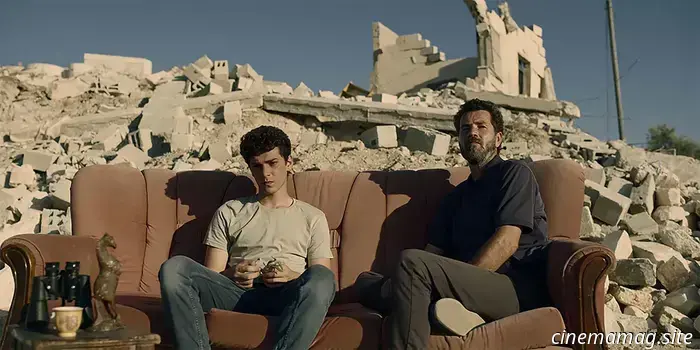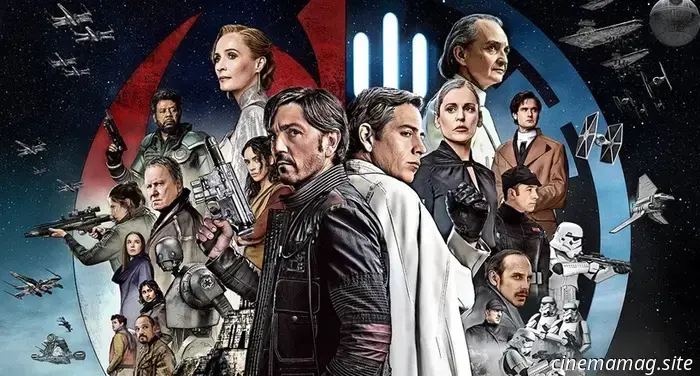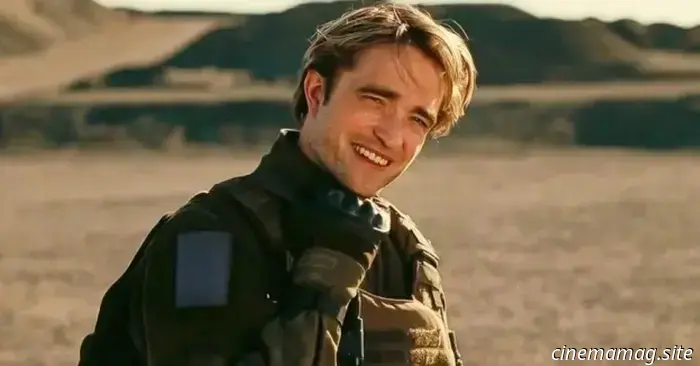
The Teacher Review: A Heartbreaking but Optimistic Perspective on Existence in a Condition of Oppression
Note: This review was initially published as part of our 2023 TIFF coverage. The Teacher will be released in theaters on April 11 by Watermelon Pictures.
Writer-director Farah Nabulsi effectively captured the stark hopelessness of life under occupation in her Oscar-nominated short film The Present a few years back. By illustrating the seemingly simple task of shopping for an anniversary gift and showcasing the harsh obstacles imposed by armed individuals, she brought forth the exhausting frustration and inescapable anger faced by Palestinians every day. Therefore, it is no surprise that her feature debut, The Teacher, follows a similar path, expanding the narrative into a more substantial exploration.
However, the film starts with an overwhelming number of subplots. It initially dives into the harassment faced by brothers Adam (Muhammad Abed Elrahman) and Yacoub (Mahmoud Bakri), shifts to the backstory of their teacher/neighbor Basem El-Saleh (Saleh Bakri), introduces a London-born volunteer social worker (Imogen Poots’ Lisa), and addresses the brutal murder of a young man to highlight the flawed justice system in an occupied area. Amidst all this, it’s easy to overlook the subplot involving a captured Israeli soldier being used as leverage for the release of Palestinian prisoners, especially when his Jewish-American father (Stanley Townsend’s Simon) reappears unexpectedly.
To Nabulsi’s credit, things begin to cohere around the midpoint as these diverse storylines start to intersect more meaningfully. Her topic is complex, requiring sufficient time for the audience to grasp the emotional weight of the outcomes stemming from entrenched systemic oppression that inevitably escalates to violence. This reality results in numerous Palestinian children being imprisoned for years. Israeli settlers are deliberately radicalizing their "enemy" in their youth to better portray themselves as victims and justify their overpowering actions as self-defense.
At 15, Yacoub spent two years in prison merely for attending a protest. Now 17, he finds himself in class with his younger brother while holding a receipt from the IDF (Israel Defense Forces) demanding payment for the demolition of his home. He has every reason to feel angry and seek vengeance, a reality Basem understands intimately, having lost everything too. This is why he strives to guide these young men on how to resist constructively. He teaches them to exercise restraint and to avoid giving a justification for wanton violence. The IDF's agenda is to provoke retaliation while hiding behind a justice system that legitimizes their actions.
Later, an exchange with Simon is particularly poignant, reflecting the dynamics at play. Simon wants to believe he represents a higher moral ground than the IDF, which dismantles homes and harms innocent women and children in search of his son. He desires to empathize with the Palestinian struggle but realizes that without taking action, his feelings are meaningless. His fear for his son's life prevents him from recognizing that the kidnappers also wish to keep their captive alive—not because he has a higher value than a thousand Palestinians, but because that’s how the Israelis perceive him. The IDF established that valuation by dehumanizing Arabs.
The moments when the characters’ actions and dialogue emphasize the realities of Israel’s apartheid system are where The Teacher truly excels. Nabulsi intricately weaves together various real instances of discrimination to demonstrate how situations can spiral out of control. While many narratives of this nature fall into a "both-sides" perspective, this film is clear in depicting the rebels’ struggle as distinct from that of terrorists. This does not excuse their actions but provides essential context. The heartbreaking truth is that violence appears to be their only avenue to make their voices heard.
The inclusion of various outsiders (Nabulsi, being a UK-born Palestinian, uses Poots as a relatable entry point, even if it straddles the "white savior" trope; Townsend’s character creates a divide between Jewish individuals and Zionists; and Paul Herzberg’s IDF leader illustrates how some seek to dehumanize Arabs) enriches the film, preventing it from succumbing to a simplistic us versus them narrative. While some might argue these characters detract from the film’s main message, I would contend that they prevent the heavy drama from devolving into pure despair. By navigating these gray areas, Bakri and Elrahman’s portrayals of Basem and Adam allow love to triumph over hate. Their narrative, while inherently tragic, retains a sense of hope, despite the inevitability of its final scene.
The Teacher debuted at the 2023 Toronto International Film Festival.
Other articles
 NECA reveals the Ultimate Pamela Voorhees action figure from Friday the 13th.
NECA reveals the Ultimate Pamela Voorhees action figure from Friday the 13th.
 The new trailer for Star Wars: Andor season 2 presents a high-stakes situation where it's all or nothing.
With less than two weeks remaining until the return of Star Wars: Andor for its second and final season, Disney+ has unveiled a new TV spot for the highly praised Rogue One prequel series, along with a poster that discloses the episode release dates; check it out here… “Season One chronicled Cassian’s hesitant transformation from a disillusioned nobody to […]
The new trailer for Star Wars: Andor season 2 presents a high-stakes situation where it's all or nothing.
With less than two weeks remaining until the return of Star Wars: Andor for its second and final season, Disney+ has unveiled a new TV spot for the highly praised Rogue One prequel series, along with a poster that discloses the episode release dates; check it out here… “Season One chronicled Cassian’s hesitant transformation from a disillusioned nobody to […]
 Robert Pattinson has been cast as the antagonist in Dune 3.
Robert Pattinson is presently strolling along the shores of Greece as he films Christopher Nolan's The Odyssey, and if the rumors are accurate, the star of The Batman and Tenet is expected to remain in the sand for an important role in Denis Villeneuve's Dune 3. As reported by Deadline, Villeneuve is seeking to expand an already […]
Robert Pattinson has been cast as the antagonist in Dune 3.
Robert Pattinson is presently strolling along the shores of Greece as he films Christopher Nolan's The Odyssey, and if the rumors are accurate, the star of The Batman and Tenet is expected to remain in the sand for an important role in Denis Villeneuve's Dune 3. As reported by Deadline, Villeneuve is seeking to expand an already […]
The Teacher Review: A Heartbreaking but Optimistic Perspective on Existence in a Condition of Oppression
Note: This review was initially published as part of our coverage for TIFF 2023. The Teacher will be released in theaters on April 11 by Watermelon Pictures. Writer-director Farah Nabulsi effectively highlighted the stark hopelessness of existing under occupation with her Oscar-nominated short film The Present a few years back. She skillfully transforms the seemingly ordinary task of grocery shopping into a poignant narrative.
